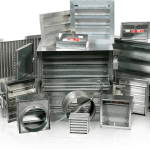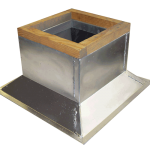
Wouldn’t it be nice if a building could sense your needs and adjust accordingly? From air conditioning to lights in the parking lot, building automation systems (BAS) are helping maximize the efficiency of everything from homes to high-rise office buildings and everything in between. Here’s a quick rundown of the basics of BAS and how they’re taking over the world of building maintenance.
Building Automation Basics
- What is a building automation system?
- Examples of building automation
- How a BAS can help with building maintenance
What Is a Building Automation System?
More and more companies are turning toward building automation systems to save energy, time, and money. BAS are system networks that help manage electronic equipment and help reduce time spent on building maintenance and inspections while allowing systems to be controlled remotely, on a timer, or as a cause-and-effect response. These systems are easy to set up, operate, and troubleshoot, making them ready to use on the day of installation.
More engineers and architects are incorporating building automation systems into their projects, and even homeowners are taking advantage of the technology to make their lives run more smoothly. Although starting from scratch is the best way to create your ideal environment, it’s easier than ever to add aspects of BAS into your home or office building.
Examples of Building Automation
Using technology to control aspects of your home or office building through BAS means you’re able to spend less time thinking about building maintenance and upkeep and more time on what really matters. Examples of systems you can control with BAS include heating, ventilation, air conditioning (HVAC) systems, fire suppression, lighting, security, and mechanical and electrical.
Smart thermostats are a great example of BAS. This technology creates a smart system that allows you to adjust the temperature remotely, set up schedules to change the temperature at a specific time, and allow thermostats to learn your routine and adjust the temperature accordingly.
How a BAS Can Help With Building Maintenance
One of the most convenient aspects of a BAS is its ability to monitor internal systems and send out alerts based on different criteria. As a result, building managers can benefit significantly from installing a BAS. For example, when a piece of equipment experiences a failure or problem, the manager can receive an alert immediately, allowing the problem to be fixed quickly and before any significant damage is done. These preventative measures can include everything from sensing water leaks and increased humidity to smoke damage, protecting your building, its occupants, and your investment.
Even though building automation utilizes new technology, it’s possible to update buildings and systems with BAS, even if the building is older. For example, updating sensors, pumps, control boards, fire dampers, thermostats, and hot water heaters can make a significant difference in the energy usage and comfort level of a building, regardless of its age.
No matter the age of your building or the industry you’re involved in, everyone can benefit from upgrading to a BAS. Whether you’re looking to gain a greater sense of control over temperature regulation or increase energy and cost savings, reduce risk, and maximize system performance, incorporating a BAS into the infrastructure of your building is a must.
Moreover, a BAS not only enhances the immediate operational efficiency of a building but also plays a crucial role in long-term sustainability. It provides valuable data and analytics that can be used to make informed decisions about energy consumption and resource management. This data-driven approach allows building managers to fine-tune systems, optimize energy usage, and ultimately reduce their environmental footprint. By embracing the capabilities of a BAS, you’re not only benefiting your building and its occupants but also contributing to a more sustainable and eco-friendly future.




